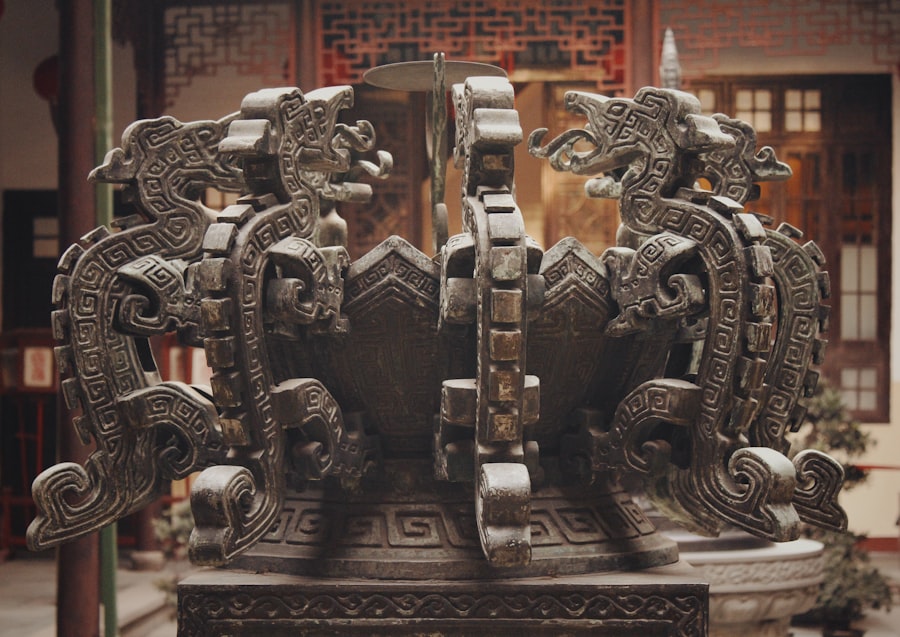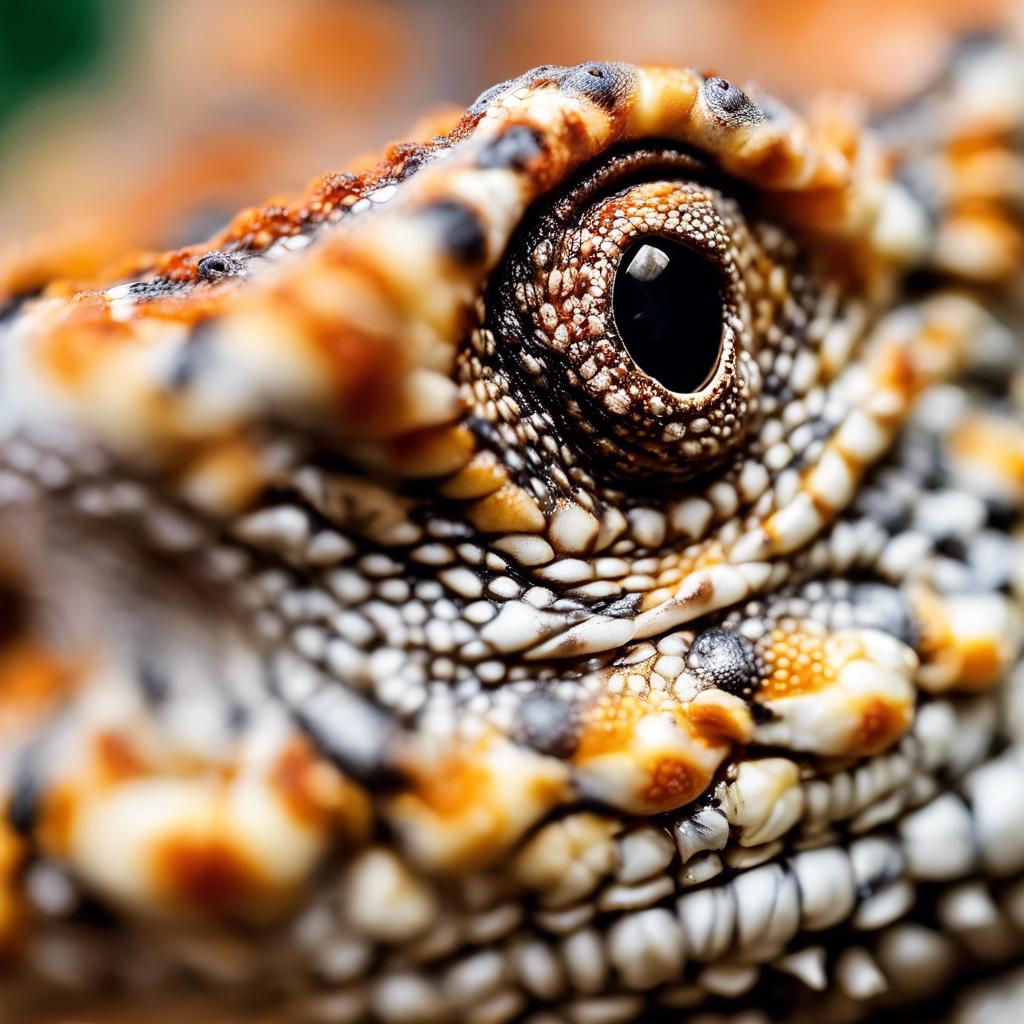Silk worms are a popular feeder insect among reptile owners, particularly those who own bearded dragons. These small, soft-bodied worms are highly nutritious and provide a range of health benefits for bearded dragons. They are a great source of protein and calcium, which are essential for the growth and overall health of these reptiles. In this article, we will explore the nutritional benefits of silk worms for bearded dragons, compare them to other feeder insects, discuss how to raise silk worms at home, and provide tips on feeding and incorporating them into a bearded dragon's diet.
Key Takeaways
- Silk worms are a nutritious food source for bearded dragons.
- Silk worms have higher protein and lower fat content compared to other feeder insects.
- Raising silk worms for bearded dragons requires a specific diet and temperature range.
- Bearded dragons should be fed a variety of foods, including silk worms, to ensure a balanced diet.
- Silk worm containers should be cleaned regularly to prevent bacterial growth.
Nutritional Benefits of Silk Worms for Bearded Dragons
One of the main reasons why silk worms are highly regarded as a feeder insect for bearded dragons is their nutritional value. They are rich in protein, which is crucial for muscle development and growth in bearded dragons. Protein is also essential for maintaining healthy skin and scales. Additionally, silk worms are an excellent source of calcium, which is necessary for strong bones and teeth in bearded dragons.
Silk worms also contain other important nutrients such as vitamins and minerals. They are high in vitamin B complex, which helps with energy production and metabolism. Silk worms also contain iron, magnesium, and potassium, which are essential for various bodily functions in bearded dragons.
Furthermore, silk worms can aid in shedding for bearded dragons. The soft exoskeleton of silk worms is easily digested by these reptiles, making it easier for them to shed their old skin. This can prevent complications such as retained shed or stuck shed, which can lead to infections or other health issues.
Silk Worms vs Other Feeder Insects for Bearded Dragons
When it comes to feeder insects for bearded dragons, there are several options available such as crickets and mealworms. While these insects can also provide some nutritional benefits, silk worms have certain advantages that make them a preferred choice for many bearded dragon owners.
One advantage of silk worms is their soft exoskeleton. Unlike crickets and mealworms, which have hard exoskeletons that can be difficult for bearded dragons to digest, silk worms have a soft and easily digestible body. This makes them a suitable option for young or juvenile bearded dragons who may struggle with digesting harder insects.
Silk worms are also low in fat compared to other feeder insects. This can be beneficial for bearded dragons that are prone to obesity or have specific dietary requirements. Additionally, silk worms have a higher moisture content, which can help keep bearded dragons hydrated.
How to Raise Silk Worms for Bearded Dragons
Raising silk worms at home can be a cost-effective and convenient way to provide a steady supply of these nutritious feeder insects for your bearded dragon. To raise silk worms, you will need a few supplies including a container, mulberry leaves or powdered food, and proper temperature and humidity control.
First, you will need a container to house the silk worms. A plastic container with ventilation holes is ideal. Line the bottom of the container with paper towels or another absorbent material to soak up any excess moisture.
Next, you will need to provide food for the silk worms. Silk worms feed exclusively on mulberry leaves, so if you have access to fresh mulberry leaves, you can place them directly in the container. If fresh leaves are not available, you can use powdered food specifically designed for silk worms. This powdered food should be mixed with water according to the instructions and placed in a shallow dish inside the container.
Maintaining the proper temperature and humidity is crucial for the growth and development of silk worms. The ideal temperature range is between 77-86°F (25-30°C), and the humidity should be around 60-70%. You can use a heat mat or lamp to provide warmth, and a hygrometer to monitor the humidity levels.
Feeding Silk Worms to Bearded Dragons: Dos and Don'ts
When feeding silk worms to bearded dragons, there are a few important things to keep in mind. First, it is essential not to overfeed your bearded dragon with silk worms. While they are highly nutritious, they should be offered as part of a varied diet. Overfeeding silk worms can lead to obesity and other health issues.
It is also important to provide variety in your bearded dragon's diet. While silk worms are a great source of protein and calcium, they should not be the sole food source for your reptile. Bearded dragons require a balanced diet that includes a mix of feeder insects, vegetables, and fruits.
When feeding silk worms to your bearded dragon, it is recommended to gut-load them beforehand. Gut-loading involves feeding the silk worms with nutritious food before offering them to your reptile. This ensures that the silk worms are packed with even more nutrients for your bearded dragon.
Incorporating Silk Worms into a Bearded Dragon's Diet

Silk worms can be incorporated into a bearded dragon's diet in various ways. The frequency of feeding silk worms will depend on the age and size of your bearded dragon. Younger dragons may require more frequent feedings, while adult dragons may only need them as an occasional treat.
A good rule of thumb is to offer silk worms as part of a varied diet that includes other feeder insects such as crickets and mealworms, as well as vegetables and fruits. This will ensure that your bearded dragon receives a balanced and nutritious diet.
To mix silk worms with other feeder insects, you can offer them on alternate days or in combination with other insects during each feeding session. For example, you can offer a few silk worms one day, followed by crickets or mealworms the next day. This will provide your bearded dragon with a range of nutrients and prevent them from becoming too reliant on one type of food.
How Many Silk Worms to Feed a Bearded Dragon
The number of silk worms to feed a bearded dragon will depend on their size and age. As a general guideline, you can offer 2-3 silk worms per feeding for baby bearded dragons, 4-6 silk worms for juvenile dragons, and 6-8 silk worms for adult dragons. However, it is important to monitor your bearded dragon's weight and adjust the amount accordingly.
Bearded dragons should have a healthy body condition, neither too thin nor overweight. If your dragon is gaining too much weight, you may need to reduce the number of silk worms or offer them less frequently. On the other hand, if your dragon is losing weight or not gaining enough, you may need to increase the number of silk worms or offer them more often.
Regularly monitoring your bearded dragon's weight and adjusting their diet accordingly will help ensure that they are receiving the right amount of nutrients and maintaining a healthy body condition.
Silk Worms as a Treat for Bearded Dragons
Silk worms can also be used as a special treat for bearded dragons. They can be offered as a reward for good behavior or as an occasional indulgence. For example, you can offer silk worms as a treat during training sessions or as a special surprise on their birthday.
When offering silk worms as a treat, it is important not to overdo it. Treats should only make up a small portion of your bearded dragon's overall diet. Too many treats can lead to imbalances in their nutrition and potentially cause health issues.
Bearded Dragon Care: Cleaning Silk Worm Containers
Keeping the containers clean and maintaining proper hygiene is crucial when raising silk worms for bearded dragons. This helps prevent the growth of bacteria and mold, which can be harmful to both the silk worms and your reptile.
To clean the silk worm containers, start by removing any uneaten food or waste. Dispose of any dead silk worms or pupae. Next, wash the container with warm soapy water and rinse thoroughly. You can also use a mild disinfectant to ensure that all bacteria and germs are eliminated.
It is important to clean the containers regularly, especially if you notice any signs of mold or bacterial growth. Regular cleaning will help maintain a healthy environment for the silk worms and prevent any potential health issues for your bearded dragon.
Silk Worms as a Healthy and Nutritious Food for Bearded Dragons
In conclusion, silk worms are a highly nutritious feeder insect for bearded dragons. They are rich in protein, calcium, vitamins, and minerals, making them an excellent addition to a bearded dragon's diet. Silk worms have several advantages over other feeder insects, such as their soft exoskeleton and ease of digestion.
Raising silk worms at home can be a cost-effective way to provide a steady supply of these nutritious insects for your bearded dragon. By following proper care and feeding guidelines, you can ensure that your bearded dragon receives a balanced and varied diet.
Incorporating silk worms into your bearded dragon's diet can provide numerous health benefits, including improved muscle development, strong bones and teeth, and aid in shedding. However, it is important not to overfeed silk worms or rely solely on them as a food source.
By considering silk worms as part of your bearded dragon's diet, you can provide them with optimal nutrition and contribute to their overall health and well-being.
If you're a bearded dragon owner, you may be wondering about the best food options for your scaly friend. While insects like crickets and mealworms are commonly fed to bearded dragons, have you ever considered silk worms? These soft-bodied larvae are not only nutritious but also easy for bearded dragons to digest. In fact, silk worms are often recommended as a healthy treat for these reptiles. To learn more about the benefits of feeding silk worms to bearded dragons, check out this informative article on Reptile Wizard's website: Can Bearded Dragons Eat Silk Worms?
FAQs
What are silk worms?
Silk worms are the larvae of the silk moth, Bombyx mori. They are commonly used as a food source for reptiles and other pets.
Are silk worms a good food source for bearded dragons?
Yes, silk worms are a nutritious food source for bearded dragons. They are high in protein and low in fat, making them a healthy addition to a bearded dragon's diet.
How do I feed silk worms to my bearded dragon?
Silk worms can be fed to bearded dragons either live or dried. Live silk worms should be dusted with calcium powder before feeding to your bearded dragon. Dried silk worms can be rehydrated by soaking them in water before feeding.
Where can I buy silk worms for my bearded dragon?
Silk worms can be purchased from pet stores or online retailers that specialize in reptile food. They can also be raised at home using a silk worm kit.
How often should I feed silk worms to my bearded dragon?
Silk worms can be fed to bearded dragons as a regular part of their diet, but should not be the only food source. They can be fed once or twice a week, depending on the age and size of your bearded dragon.
Are there any risks associated with feeding silk worms to bearded dragons?
Silk worms are generally considered safe for bearded dragons to eat. However, as with any food source, there is a risk of choking or digestive issues if they are not fed properly. It is important to monitor your bearded dragon while they are eating and ensure that the silk worms are an appropriate size for their age and size.

